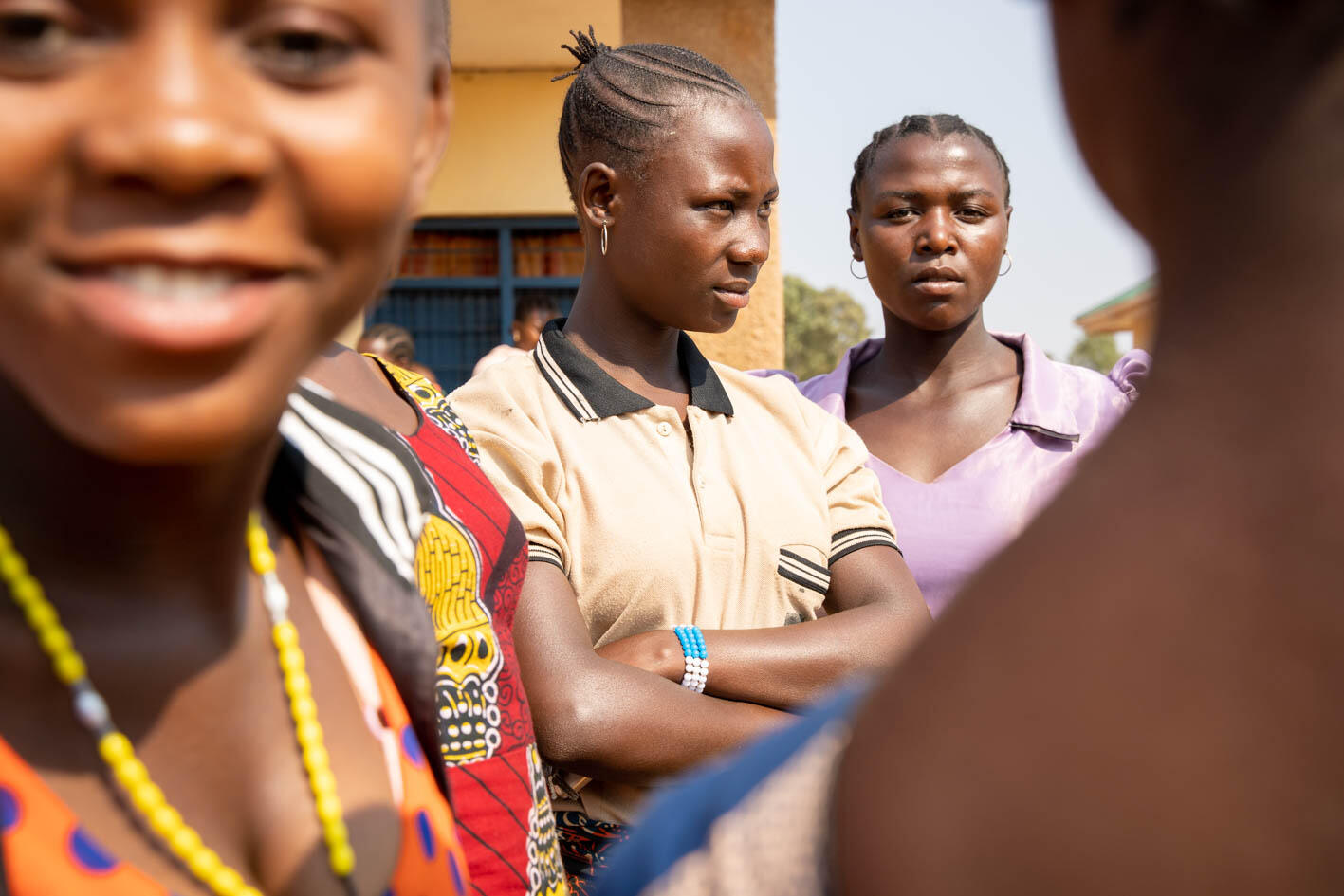“It’s difficult to talk about menstruation and sanitary pads openly because it’s not something we do. I try to save money for pads, but if it runs out I use pieces of cloth,” says Bupe.* Pieces of cloth, she adds, that have to be washed and dried out of sight.
She is not alone. Managing menstruation is often challenging for adolescent girls in Tanzania – and around the world – where privacy and access to affordable materials and water to manage periods are often lacking.
I used to miss one week of school every month; I didn’t want to shame myself in front of my peers.
Persistent inequalities and perceptions that menstruating is somehow ‘dirty’ or ‘shameful’ can also mean that menstruation and puberty mark the start of restrictions to girls’ mobility and behaviour – a time when their opportunities can radically diminish; a time when they start to miss out.
“I used to miss one week of school every month,” says Glory.* “I didn’t want to shame myself in front of my peers.”
Her narrative is echoed by her friends. The silence and stigma that exists around menstruation continues to disempower girls globally, negatively affecting their education and health. But in Kasulu District, Kigoma Region, Tanzania, this is changing.
Empowering girls
Today, as Menstrual Hygiene Day is commemorated around the globe, with a call for increased investments and action to realize the collective vision of a world where women and girls can manage their menstruation with dignity and respect, UNFPA handed over improved latrines that have been built at 10 primary schools in Irish Aid-supported Ujana Wangu Nguvu Yangu – My Youth, My Power – project districts in Kigoma. The latrines include a dedicated changing room for girls with an attached incinerator for the disposal of used sanitary pads.
Five thousand Dignity Kits, complete with reusable sanitary pad, were also distributed to school girls attending the celebrations, in tandem with menstrual hygiene education sessions – over 10,000 pads have been distributed since the project began in 2018.
Asma,* one of the recipients of the Dignity Kits, and a student at KumKata primary school, could barely hide her delight. She described the kit, and access to period-friendly sanitation facilities at her school, as “a golden opportunity”; a chance to compete as an equal with her male peers. “The drums are roaring for the girls of Kigoma now,” she added with a smile.
Committed to change
Over 10,000 girls and boys have attended education sessions on menstrual hygiene management (MHM) in the five Ujana project districts since 2018. They are now championing efforts to spread the message that menstruation is a normal and healthy part of life. Extensive advocacy with school committees, teachers, parents and care takers for period-friendly sanitation facilities in schools has also secured commitment for the replication of the 10 latrines built under the project at more schools in the future.
Leaving no one behind is the central, transformative promise of the 2030 Agenda for Sustainable Development, and although there is no specific goal or indicator related to menstrual hygiene, ensuring that all women and girls can manage their periods with dignity is integral to the achievement of Sustainable Development Goal (SDG) 3 – good health and well-being – and SDG5 – gender equality and women’s empowerment – as well as several others.
UNFPA in Tanzania will continue to support efforts to build sustainable and effective MHM programmes that expand access to affordable and environmentally-friendly menstrual products and period-friendly facilities and bust myths that periods are a problem, so that girls in Kigoma – and across Tanzania – are not held back and do not miss school, but are empowered to compete as equals and realize their potential and aspirations – period!
*Names have been changed.


